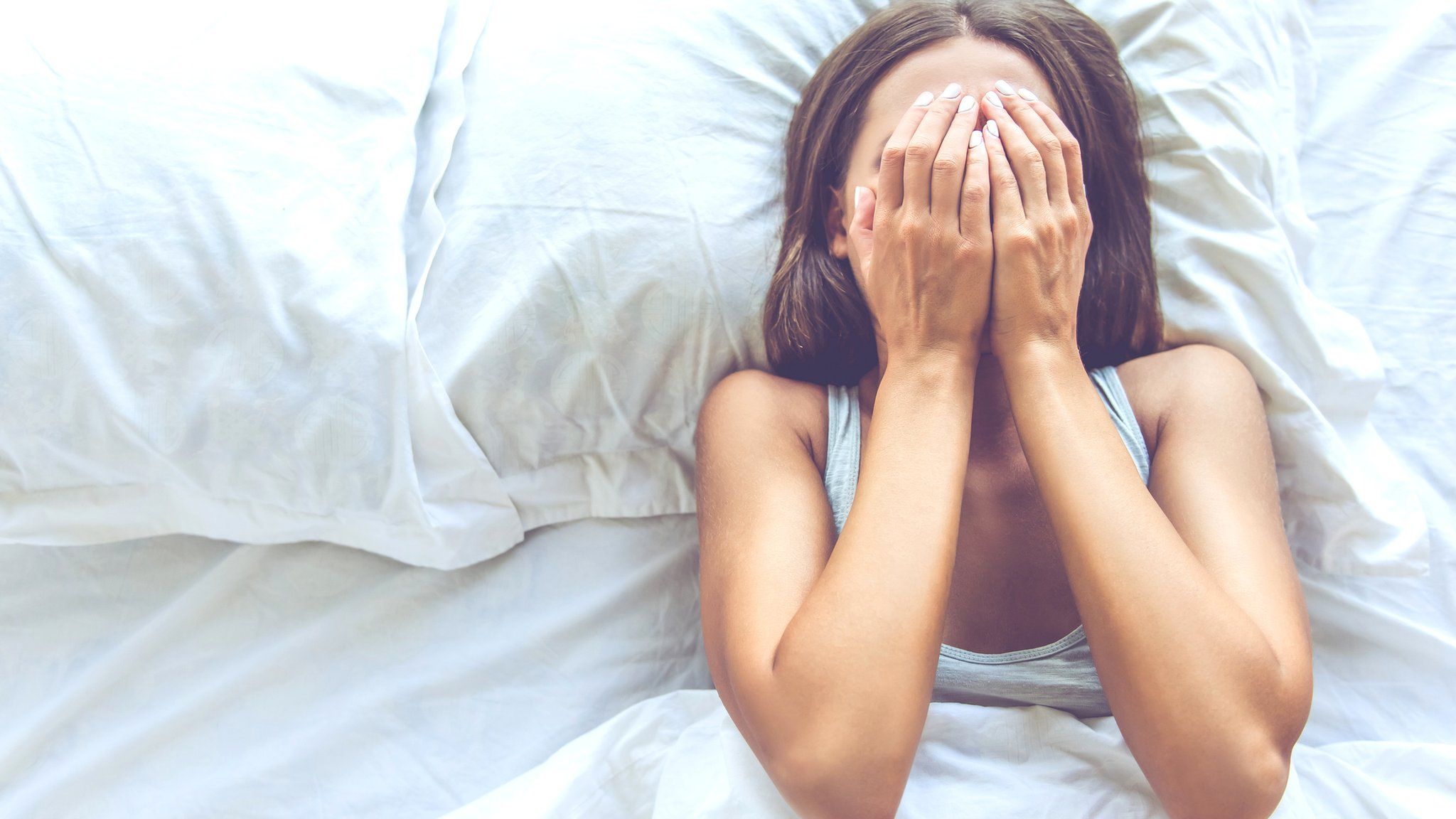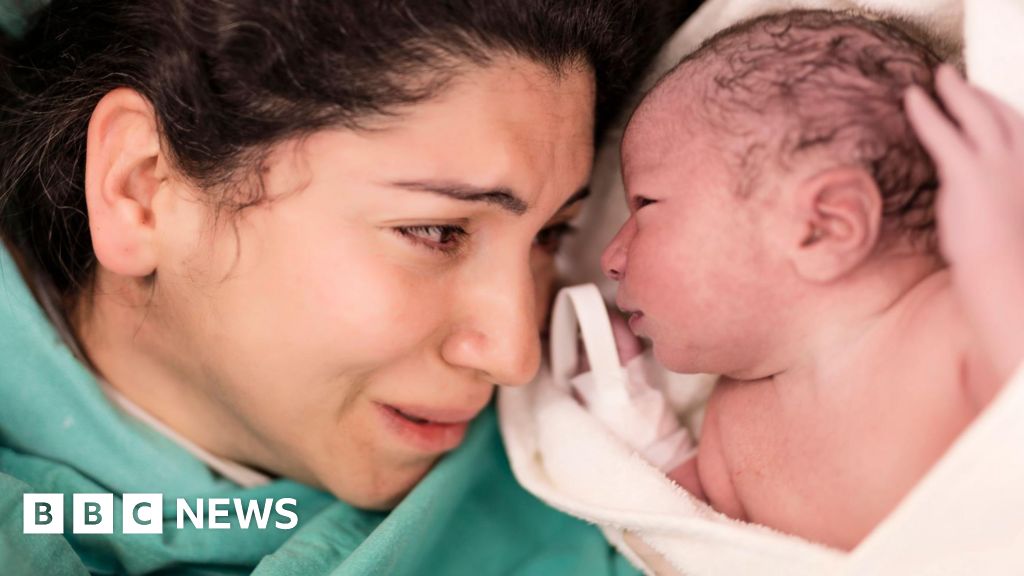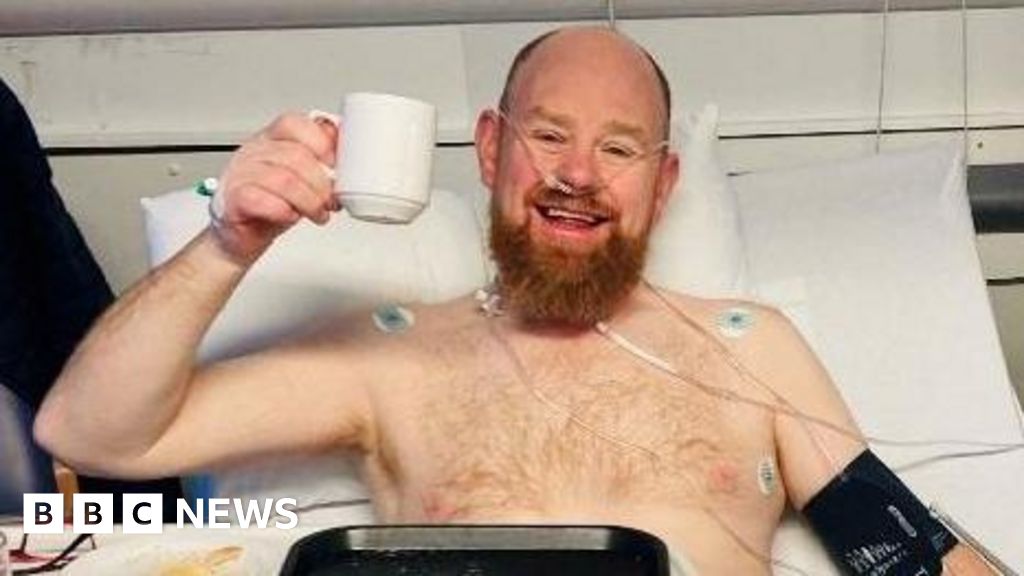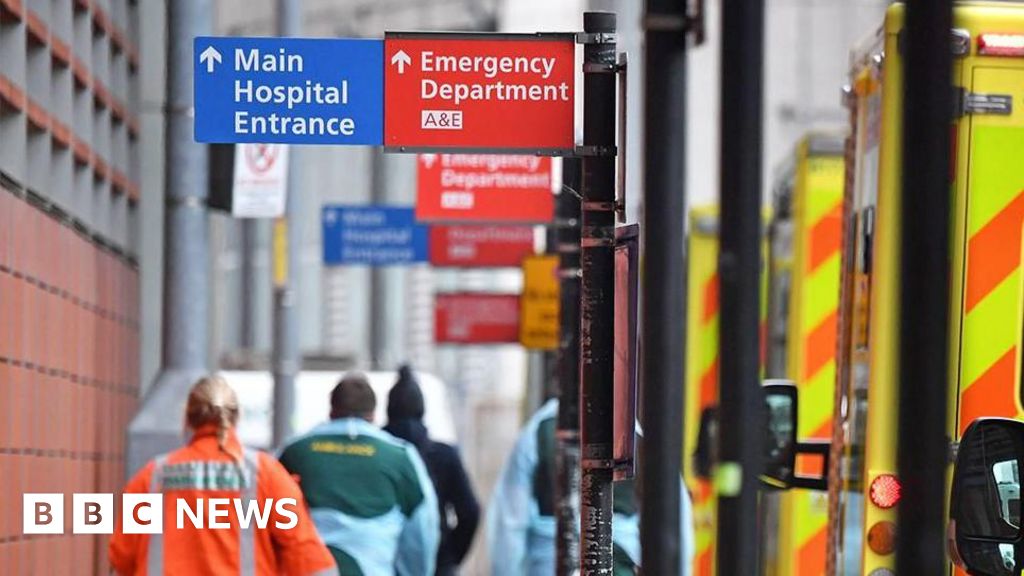 Image source, Getty Images
Image source, Getty Images
While current high temperatures are in central and southern England, the hottest day of the year so far has been declared.
Yellow heat health alerts are in place for millions of people indicating that the weather conditions could pose a risk to those who are particularly vulnerable.
Here are some tips to help you get a good night's sleep during a period of high temperatures.
1. No napping
Hot weather can make us feel a bit lethargic during the day. That is because we are using more energy to regulate our internal temperature.
But if your sleep is disturbed at night, try to avoid napping during the day. When it is hot, sleepiness can be precious - save it for bedtime.
2. Keep to routines
Hot weather can encourage you to change your habits. Don't. That can disrupt sleep.
Try to keep to your usual bedtime and routines. Do the things you normally do before bed.
3. Remember the basics
Take steps to make sure your bedroom is as cool as it can be at night.
During the day, draw the curtains or blinds to keep out the sun. Make sure you close the windows on the sunny side of your home, to keep out hot air.
Open all the windows before you go to bed, to get a through breeze.
4. Use thin sheets
Reduce your bedding but keep covers handy. Thin cotton sheets will absorb sweat.
However hot it is in your bedroom, your body temperature will fall during the night. That is why we sometimes wake up feeling cold.
5. Chill your socks
Using even a small fan can be sensible in hot weather, especially when it is humid.
It encourages the evaporation of sweat and makes it easier for your body to regulate your internal temperature.
If you do not have a fan, try filling your hot water bottle with ice cold liquid instead.
Alternatively, cool socks in the fridge and put those on. Cooling your feet lowers the overall temperature of your skin and body.
6. Stay hydrated
Drink enough water throughout the day but avoid drinking very large amounts before bed.
Image source, Getty Images
You probably do not want to wake up thirsty - but you do not want to take an additional trip to the bathroom in the early hours either.
7. But think about what you drink
Be careful about soft drinks. Many contain large amounts of caffeine, which stimulates the central nervous system and makes us feel more awake.
Avoid drinking too much alcohol as well. Many people drink more when the weather is hot.
Alcohol might help us fall asleep but it promotes early morning waking and a poorer quality of sleep overall.
How do hot temperatures affect the body?
Dehydration: Drink enough water to make sure you replace that lost through urination, sweating and breathing
Overheating: This can be a particular problem for those with heart or breathing problems. Symptoms include tingling skin, headaches and nausea
Exhaustion: This is when you start to lose water or salt from your body. Feeling faint, weak, or having muscle cramps are just some of the symptoms
Heatstroke: Once a body temperature reaches 40C or higher, heatstroke can set in. Indicators are similar to heat exhaustion but the person may lose consciousness, have dry skin and stop sweating
8. Stay calm
If you are struggling to sleep, get up and do something calming. Try reading, writing, or even folding your socks.
Just make sure you do not play on your phone or a video game - the blue light makes us feel less sleepy and the activity is stimulating.
Return to bed when you feel sleepy.
9. Think of the children
Children are usually quite robust sleepers - but they can be very sensitive to changes in family "mood" and routine.
Image source, Getty Images
Image caption,Lukewarm baths can help before bedtime during hot weather
Make sure usual bedtimes and bath times do not go out of the window just because it is warm.
As part of the bedtime routine, lukewarm baths are recommended by the NHS UK website., external Make sure they are not too cold, as that will boost circulation (your body's way of keeping warm).
A baby cannot let you know if they are too hot or too cold, so it is important to monitor their temperature. They will sleep best when the room temperature is kept between 16C and 20C.
You could install a thermometer where the baby is sleeping.
10. Get over it
Most of us need about seven to eight hours of good-quality sleep, external each night to function properly.
But remember that most people can function well after a night or two of disturbed sleep.
Although you might yawn a little more frequently than usual, you will probably be fine.
These tips were based on suggestions by Prof Kevin Morgan, former director of the Clinical Sleep Research Unit at Loughborough University, and Lisa Artis, of the Sleep Council. This article was first published in July 2019.

 4 months ago
25
4 months ago
25









